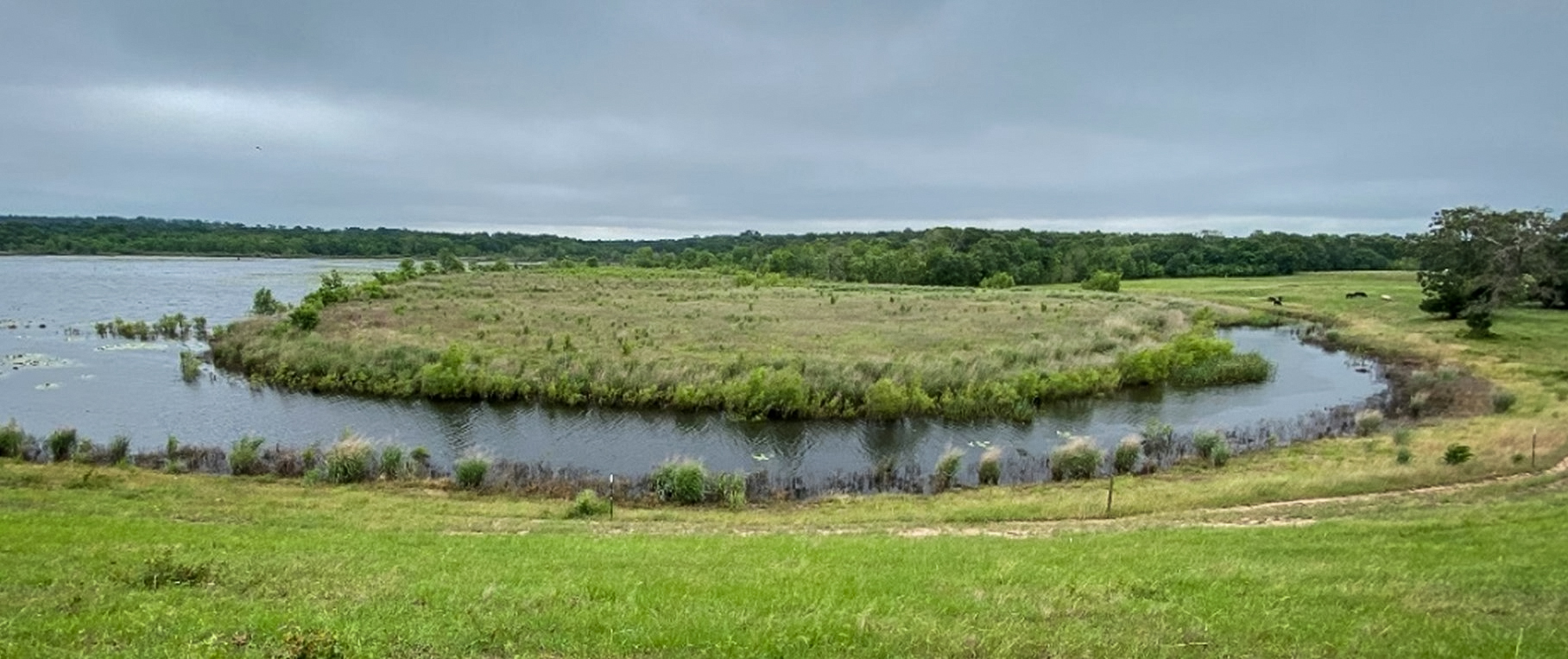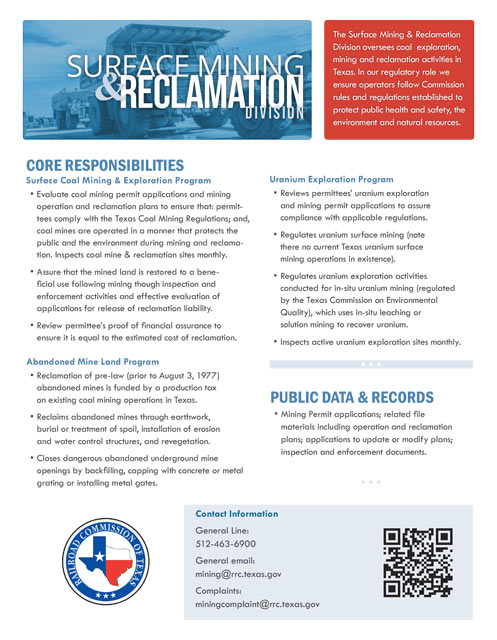Printed Publications
To purchase a publication, contact Central Records
at 512-463-6882.
| Coal Mining Regulations | $17.00 |
| Texas Surface Coal Mining Reclamation Act | $7.00 |
| Uranium Mining Regulations | $6.00 |
| Texas Uranium Surface Mining Reclamation Act | $6.00 |
Surface Mining & Reclamation ANNOUNCEMENTS
Surface Mining & Reclamation Division 2023 Texas Reclamation Award
August 01, 2023
The Texas Municipal Power Agency (TMPA) is the latest recipient of the RRC’s Texas Reclamation Award. The award recognizes the successful reclamation of the Pond SP-50 Islands Project at TMPA’s Gibbons Creek Lignite Mine, vastly improving the land from its former natural state.
Since its reclamation, the site has become a popular location for the Christmas Bird Count and aquatic wildlife in Grimes County, east of Bryan.
Pond SP-50 Islands Project was originally built in 1994 for sediment control of a new area and mining began in 1995. Later that year, TMPA closed Gibbons Creek Lignite Mine and decided to import coal from another location and no mining occurred in the watershed of Pond SP-50.
In 2016, a decision was made to convert the waste piles left on the area into islands with wetland wildlife enhancement features. Channels were excavated to separate the waste piles from the banks of the pond, leaving them as islands. The soils of the waste piles were improved to create suitable plant growth material by liming, fertilizing, and deep aeration.
In 2018, TMPA planted grass and woody vegetation and used sprinklers to help the vegetation become established.

Pond SP-50 Islands
The project meets and exceeds the intended Post-Mining Land Use as it enhances the Developed Water Resources designation of the pond and provides an additional 12 acres of added environmental value in the form of wetlands and wildlife enhancement areas distributed over four islands
What we do
One of the state's most abundant energy resources is a form of soft coal called lignite. Many lignite deposits lie close to the surface, easily reached with modern mining technology. Texas is the largest consumer of coal in the United States and in 2015 was the seventh largest coal-producing state.In 1975, the Texas Legislature gave the Railroad Commission jurisdiction to regulate surface mining for coal and uranium. Companies mining coal/lignite in Texas must have a Commission permit and post a bond for each site they operate in the state. The goal of the coal mining regulations is that the mined land is returned to a condition that is as good as, or better than, it was before mining. Division field personnel make, at a minimum, monthly visits to mine sites, checking for compliance with coal mining regulations.
No surface mining for uranium is currently conducted but uranium exploration continues to be conducted for in situ uranium mining operations and is administered by the Surface Mining and Reclamation Division. (In situ uranium mining is regulated by the Texas Commission on Environmental Quality). Active uranium exploration sites are inspected monthly.
The Surface Mining and Reclamation Division also administers a program to reclaim dangerous or environmentally harmful abandoned mine sites that were mined prior to the implementation of the federal surface mining law in 1975 to ensure the safety of the public and protect the environment by eliminating these hazardous abandoned mines throughout the state.
The Surface Mining & Reclamation Division oversees coal exploration, mining and reclamation activities in Texas. In our regulatory role we ensure operators follow Commission rules and regulations established to protect public health and safety, the environment and natural resources.








